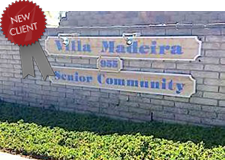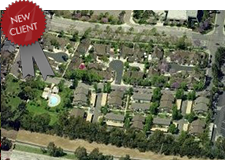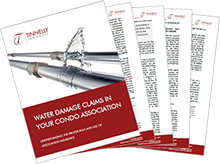 *Unpublished Opinion
*Unpublished Opinion
With increasing frequency, homeowners associations are confronted with members publishing content related to their association and its operations, whether on Facebook, blog posts, or other various online forums. Sometimes these publications are critical of the association board of directors, misrepresent important information and facts, or fraudulently purport to be official association publications. The various potential issues associated with member publications are seemingly endless, but California courts periodically provide clarity regarding issues that can arise in the context of member/association publications. The recent unpublished opinion of Kulick v. Leisure Village Association (2018) arose out of the publication of such member content and provides insight into how courts view and address some of these issues.
The Kulick case involved two separate lawsuits between a homeowner (“Kulick”) and his homeowner’s association (“Association”), the Association’s board of directors (“Board”), and the Association’s attorneys. Kulick, a long-time resident with a history of conflict and grievances against the Association, anonymously published and circulated newsletters (“Newsletters”) within the community in violation of the Association’s rules and regulations prohibiting anonymous publications. Kulick’s anonymous Newsletters were frequently critical of the Association Board.
The Association successfully filed suit against Kulick for intentional interference with Association insurance coverage. In response to the Association’s lawsuit, Kulick levied accusations against the Board in one of his anonymous Newsletters. In defense of Kulick’s claims, the Association (through counsel) prepared and circulated a letter (“Letter”) to each community member addressing Kulick’s specific allegations by denying Board misconduct and inviting the membership to view court filings in the pending matter. The Letter described Kulick’s most recent missive as a “reckless communication” containing “unfounded, inaccurate, and spiteful allegations” against the Association, Board, and the Association’s attorneys. It also contained details regarding the then-pending matter and the Association’s success in their preliminary injunction against Kulick. After the Letter was circulated, Kulick brought a lawsuit against the Association for defamation arising out of the Letter to the membership, among other causes of action.
The trial court dismissed Kulick’s case after the Association brought an Anti-SLAPP motion against the defamation claim (“SLAPP” stands for Strategic Lawsuits Against Public Participation; such motions are designed to protect defendants who have been sued for acts in furtherance of a constitutionally protected right of free speech or petition). On appeal, the court found that the Letter constituted “protected activity” as a public writing (i.e. circulated to all members throughout the community) in connection with an issue of public interest – the ongoing controversy of the then-pending lawsuit between the Association and Kulick. Additionally, the court found that Kulick could not demonstrate a likelihood of success on the merits because “expressions of opinion that do not include or imply false factual assertions do not constitute actionable defamation,” among other reasons. For these reasons, the appellate court upheld the trial court’s ruling against Kulick.
While the Kulick case did not ultimately address the anonymous nature of Kulick’s publications or the validity of the Association rule prohibiting them, Kulick raises important issues for associations to consider when confronted with homeowner publications, or association responses to them. While it is unclear to what extent associations can restrict member publications, such as the regulation of anonymous publications, the court in Kulick signaled an association’s ability to address specific member allegations in the public forum of the community. However, when addressing such claims, associations should be mindful of the content of these responses as certain communications are not permissible (e.g. false assertions of fact, etc.). Conversely, an association has rights against defamation published by its members and should address any member publications that defame the association, its board of directors, managing agent, or employees.
Additionally, associations should be vigilant regarding member publications that purport to be official association publications, or publications that are circulated that contain patently false information. Such publications can cause significant disruption in an association’s affairs if allowed to exist and perpetuate. Ultimately, while the line between permissible and actionable content is by no means clear and varies case by case, associations should be alert for member publications that contain clearly false assertions of fact or publications that purport to be official association communications. If you have concerns regarding member publications or appropriate association responses to them, association counsel should be contacted to review the material and discuss potential remedies to the extent they are available.
| Although Kulick is an unpublished opinion, it provides an indication of how a future court may rule in a similar situation. When confronted with member publications, homeowners associations should consider whether the published content violates any association rules and regulations, whether it contains false assertions of fact, or whether the content purports to be or could be reasonably construed as an official association publication intended to mislead the recipients and/or members. |
-Blog post authored by TLG Attorney, Tim D. Klubnikin, Esq.
 HOA Lawyer Blog
HOA Lawyer Blog


 We are proud to announce that Villa Madeira Property Owners Association, Inc. has selected Tinnelly Law Group as their association’s legal counsel.
We are proud to announce that Villa Madeira Property Owners Association, Inc. has selected Tinnelly Law Group as their association’s legal counsel. We are proud to announce that Brighton Homeowners Association has selected Tinnelly Law Group as their association’s legal counsel.
We are proud to announce that Brighton Homeowners Association has selected Tinnelly Law Group as their association’s legal counsel. Congratulations! You’ve just been elected to your Board of Directors – now what? Or maybe you’ve been serving as a volunteer director for some time and you just aren’t sure which way is up. If you have been dazed and confused but still have a passionate heart to do the right thing in the best interest of your community, then there may be some myths that need to be debunked. Navigating through conflict, financial tough spots, working with your service providers, noncompliance issues, homeowner requests, day-to-day operations, and strategic planning can be overwhelming. Changing the way you do business can take you from volunteer Board member to community leader.
Congratulations! You’ve just been elected to your Board of Directors – now what? Or maybe you’ve been serving as a volunteer director for some time and you just aren’t sure which way is up. If you have been dazed and confused but still have a passionate heart to do the right thing in the best interest of your community, then there may be some myths that need to be debunked. Navigating through conflict, financial tough spots, working with your service providers, noncompliance issues, homeowner requests, day-to-day operations, and strategic planning can be overwhelming. Changing the way you do business can take you from volunteer Board member to community leader. We are proud to announce that Arbor Real Homeowners Association has selected Tinnelly Law Group as their association’s legal counsel.
We are proud to announce that Arbor Real Homeowners Association has selected Tinnelly Law Group as their association’s legal counsel. We are proud to announce that Heritage at Vista Del Verde Homeowners Association has selected Tinnelly Law Group as their association’s legal counsel.
We are proud to announce that Heritage at Vista Del Verde Homeowners Association has selected Tinnelly Law Group as their association’s legal counsel. The issue of whether or not a homeowners association is required to install and maintain an automated external defibrillator (“AED”) on-site is a question that has not been directly addressed by California courts. As a result, many community members and Board of Directors (“Board”) seek legal guidance and clarity as to the same. In particular, associations that maintain common area facilities and accommodations such as a gym, basketball court, tennis court, or swimming pool, feel the need to maintain an AED due to the rising number of lawsuits that are being filed against businesses and corporate entities for failing to maintain same.
The issue of whether or not a homeowners association is required to install and maintain an automated external defibrillator (“AED”) on-site is a question that has not been directly addressed by California courts. As a result, many community members and Board of Directors (“Board”) seek legal guidance and clarity as to the same. In particular, associations that maintain common area facilities and accommodations such as a gym, basketball court, tennis court, or swimming pool, feel the need to maintain an AED due to the rising number of lawsuits that are being filed against businesses and corporate entities for failing to maintain same. We are proud to announce that Park Vista Maintenance Association has selected Tinnelly Law Group as their association’s legal counsel.
We are proud to announce that Park Vista Maintenance Association has selected Tinnelly Law Group as their association’s legal counsel. s legal counsel.
s legal counsel. *New Library Article!
*New Library Article!